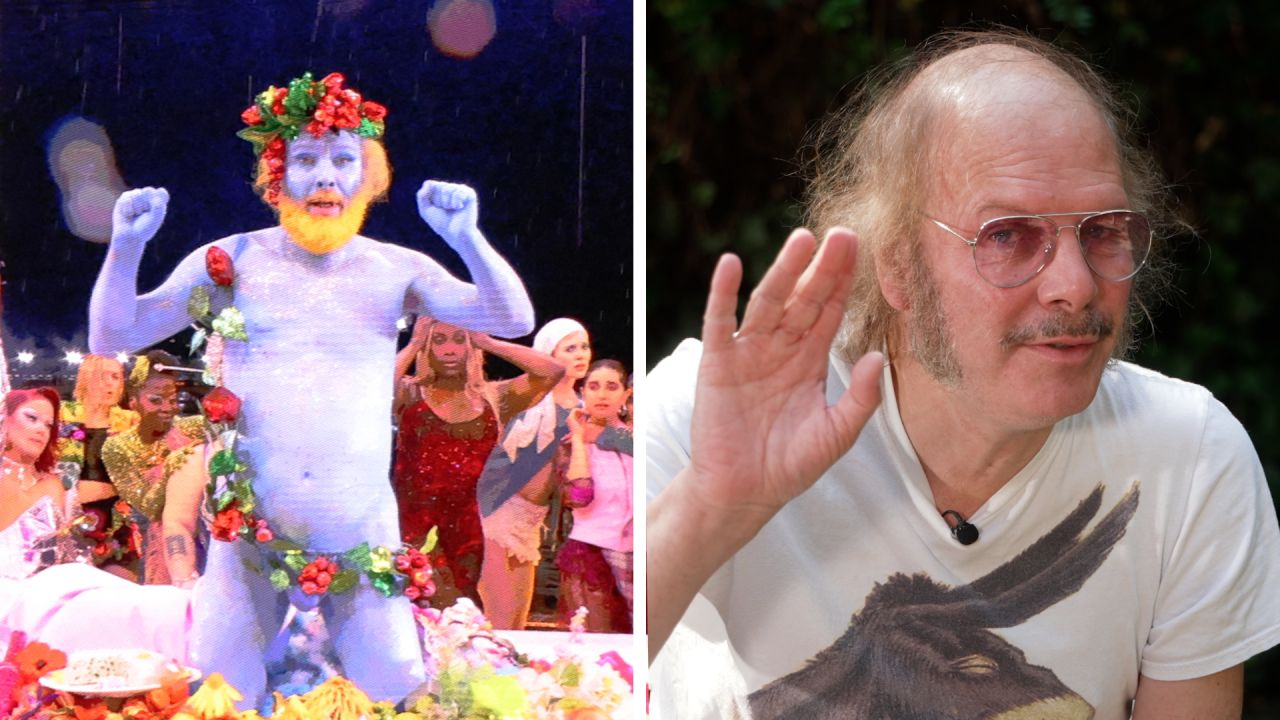It was one of the more memorable moments of arguably the most unique opening ceremony in history, but one that has sparked controversy around the world.
The scene in question has been described by some critics as a parody of “The Last Supper” and one which featured drag artists and multiple dancers.
The performance and scene in question also included Philippe Katerine, a French entertainer who featured as the Greek god of wine Dionysus and quickly became known as the “semi-naked blue guy.”
In the scene, Katerine sang a song while lying on a table, seemingly without clothes and covered head-to-toe in glittery blue paint.
His appearance went viral on social media, watched by millions of people around the world. In an interview with CNN, Katerine said his song “Nu” – or “Naked” – was a message for peace, inspired by war, such as those in Gaza and Ukraine.
“Would there have been wars if we’d stayed naked? The answer is perhaps not because you can’t hide a gun or a dagger when you’re naked,” he said.
“So you’ve got this idea of harmlessness when it comes to the naked man. And the idea of the origins of the Olympic Games in Greece, which are represented today because when you see paintings, they’re of naked athletes too, also with the idea that they can’t carry weapons when they’re naked.
“This was also the idea behind the origins of the Olympic Games. So there I came, simply, to sing this song.”

Olympic organizers have since apologized for the scene after it was criticized by the Catholic church and Christian groups.
The French Catholic Church said the festivities “included scenes of derision and mockery of Christianity.”
Paris 2024 spokesperson Anne Descamps later said there was “clearly never an intention to show disrespect to any religious group,” while the director of the opening ceremony, Thomas Jolly, insisted that “The Last Supper” – a mural painted by Renaissance artist Leonardo da Vinci – wasn’t the inspiration behind the scene.
Katerine said he was “deeply sorry” if his appearance shocked people but confirmed it was never his intention and the fallout has been driven by a “misunderstanding.”
“I was brought up as a Christian and the best thing about Christianity is forgiveness. For me, it’s the most beautiful thing there is: forgiveness,” he added.
“So I ask for forgiveness if I have offended anyone, and the Christians of the world will grant me that, I’m sure, and will understand that it was mostly a misunderstanding. Because when it comes down to it, it wasn’t about representing ‘the Last Supper’ at all.”
Katerine quickly became aware of criticism and said he re-watched his performance to work out why people would be upset.
“I saw something very colorful, reconciliatory and peaceful,” he said, adding he was left “surprised.”
The singer said it was the first time he had sung the song and was frustrated the International Olympic Committee (IOC) had refused to use subtitles, leading in part, he says, to the confusion that followed.
Despite receiving criticism from some, Katerine was also praised for creating one of the lasting memories from the lavish ceremony.
He said it took three make-up artists three hours to create his glittery blue look. His image also required a full-body wax – dedication indeed.
“On stage, I’m always very, very happy to perform and show off, within the limits of reason, of course,” he said.
“But in life, I’m very shy and like to hide and observe others without being seen. That’s what I prefer. So it’s true that it amuses me to see myself like this, but there you have it.”
CNN’s Matias Grez and Chris Liakos contributed reporting.






